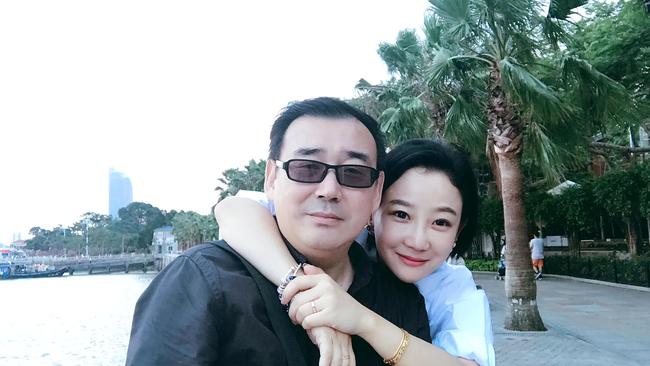Australia’s fight for author’s rights a crucial test of China’s rule of law
The case of imprisoned Chinese-Australian writer is too important for Australia to back down.

China told Australia this week in no uncertain terms to stay out of the case of imprisoned Chinese-Australian writer Yang Hengjun. But this matter is too important, and too much is at stake, for Australia to back down.
Being a true friend and ally of any nation means when issues arise in a foreign justice system affecting Australian citizens, we are obliged to speak up.
Respect for state sovereignty is undoubtedly important. But respect for human rights and the rule of law must be paramount concerns for us all. We cannot allow a mockery to be made of international law.
The Australian government has made clear we will not look the other way or shirk from demanding basic standards of justice and procedural fairness are provided to Yang.
After travelling to China with his family, the democracy advocate and academic was detained in January on the allegation of being suspected of “endangering national security”.
Since then he has been held in harsh conditions without charge, with limited access to consular assistance. He has not been permitted to talk to his lawyers or see his family.
On August 23, Yang was formally arrested on suspicion of espionage. In China, some espionage offences are punishable by death. Yang’s arrest means he now enters a further period of “investigation” as the Chinese authorities prepare for his trial. His lawyers do not know the particulars of the allegations against him and they will likely continue to be denied access to Yang until the trial phase begins.
Yang is an Australian citizen. He was awarded a PhD from the University of Technology Sydney for his thesis titled The Internet and China: The Impacts of Netizen Reporters and Bloggers on Democratisation in China. As a blogger, he has written thousands of articles promoting the rule of law, democracy and human rights, and built up a large following in China.
Australia’s legal community holds grave concerns for his wellbeing and that justice will be administered. This year the Law Council of Australia has made representations to the Australian government, International Bar Association and LAWASIA, the law association for Asia and the Pacific. This month I raised concerns with presidents of law associations across Asia, including leaders of China’s legal profession, at a meeting in Kunming, China.
If a Chinese citizen were detained in Australia in the circumstances of Yang, the Australian legal profession would be the first to demand access to a lawyer and unrestricted access to consular officials. While attending a recent meeting of Presidents of Law Associations in China, I told my Chinese colleagues I expected the same advocacy from China’s legal profession and Ministry of Justice.
You cannot claim there is the rule of law in China in the absence of an independent judiciary, when detainees are denied access to lawyers and lawyers are imprisoned for seemingly doing their job by representing persons who may have a contrary view to the government.
Yang’s treatment appears to be inconsistent with international law. The Universal Declaration of Human Rights enshrines principles including the presumption of innocence. The International Covenant on Civil and Political Rights proclaims the right to be tried without undue delay and to a fair, public hearing by a competent, independent and impartial tribunal established by law.
Adequate protection of rights and freedoms under those laws, and many more, cannot be achieved if people cannot access an independent legal profession and an independent judiciary that can undertake their important roles without fear of reprisal, to promote the administration of justice and ensure a fair trial.
Yang and detainees like him must be treated humanely in a fair, transparent manner, in accordance with international law. These laws are worthless if signatories do not hold each other to account.
Australia’s Foreign Affairs Minister Marise Payne has made strong representations decrying Yang’s detention without reason. The government, legal profession and public must continue this advocacy.
But a global response is essential. The world’s eyes must be on China, imploring it to observe human rights, freedom of speech and the rule of law.
In recent years China’s economy, infrastructure and technology have evolved and expanded.
But it is the rule of law that most strongly drives economic performance.
The Belt and Road Initiative, started under China’s leadership, will commercially connect the world’s largest population centres. It will also invariably link our legal systems, through incoming cross-border transactions and disputes. This connection between justice systems will be key to the initiative’s success.
To maximise future economic growth for all of Asia, there must be consistency and minimum standards across our respective justice systems to maintain confidence by investors, corporations and individuals that any disputes will be dealt with transparently by an independent judiciary, compliant with the rule of law.
China’s handling of Yang’s case, and the hundreds of human rights activists and lawyers arrested during China’s crackdown in 2015, undermines this confidence.
These brave men and women have spoken without fear in favour of the rule of law. It is time the world speaks up for them.
Arthur Moses SC is president of the Law Council of Australia.



To join the conversation, please log in. Don't have an account? Register
Join the conversation, you are commenting as Logout